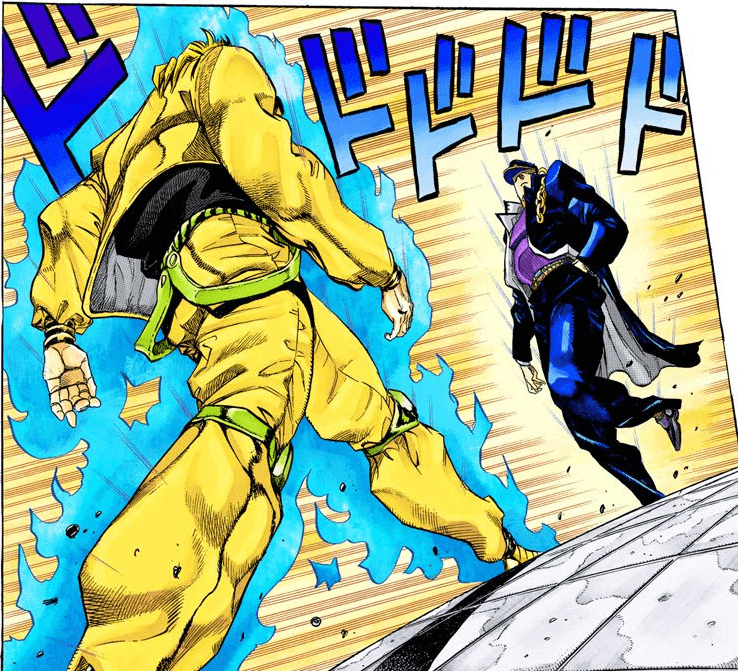Good news! If you've learned Hiragana, you're already halfway to learning Katakana.
Here's the full Hiragana character set again. Let's do a magic trick on it.
| あa | いi | うu | えe | おo | |
| k | かka | きki | くku | けke | こko |
|---|---|---|---|---|---|
| s | さsa | しshi | すsu | せse | そso |
| t | たta | ちchi | つtsu | てte | とto |
| n | なna | にni | ぬnu | ねne | のno |
| h | はha* | ひhi | ふfu | へhe | ほho |
| m | まma | みmi | むmu | めme | もmo |
| m | やya | ゆyu | よyo | ||
| r | らra | りri | るru | れre | ろro |
| w | わwa | をwo* | |||
| n | んn | HIRAGANA | |||
| a | i | u | e | o | |
|---|---|---|---|---|---|
| g | がga | ぎgi | ぐgu | げge | ごgo |
| z | ざza | じji | ずzu | ぜze | ぞzo |
| d | だda | ぢji | づzu | でde | どdo |
| b | ばba | びbi | ぶbu | べbe | ぼbo |
| p | ぱpa | ぴpi | ぷpu | ぺpe | ぽpo |
| アa | イi | ウu | エe | オo | |
| k | カka | キki | クku | ケke | コko |
|---|---|---|---|---|---|
| s | サsa | シshi | スsu | セse | ソso |
| t | タta | チchi | ツtsu | テte | トto |
| n | ナna | 二ni | ヌnu | ネne | ノno |
| h | ハha | ヒhi | フfu | ヘhe | ホho |
| m | マma | ミmi | ムmu | メme | モmo |
| y | ヤya | ユyu | ヨyo | ||
| r | ラra | リri | ルru | レre | ロro |
| w | ワwa | ヲwo* | |||
| n | ンn | KATAKANA | |||
| a | i | u | e | o | |
|---|---|---|---|---|---|
| g | ガga | ギgi | グgu | ゲge | ゴgo |
| z | ザza | ジji | ズzu | ゼze | ゾzo |
| d | ダda | ヂji | ヅzu | でde | ドdo |
| b | バba | ビbi | ブbu | ベbe | ボbo |
| p | パpa | ピpi | プpu | ペpe | ポpo |
Katakana represents the exact same sounds as Hiragana but uses different symbols.
What's the point of having two identical alphabets??
Like Hiragana, Katakana encapsulates all the sounds of the native Japanese language, so you can use it to write any and all Japanese words. Here's how you differentiate which set of characters to use:
Hiragana is used for native Japanese words.
すし su-shi (Sushi)
まんが ma-n-ga (Manga)
こんにちわ ko-n-ni-chi-wa (Means "Hello")
なに na-ni (Means "what")
Katakana is used for foreign words borrowed from other languages as well as onomatopoeic words (sound-words like crash, jingle, bang).
レストラン re-su-to-ra-n (Restaurant)
アメリカ a-me-ri-ka (America)
ピカピカ pi-ka-pi-ka ("Sparkle" sound)
チュウチュウ chyuu-chyuu(Sound a mouse makes)
ピカチュウ ...Can you guess this one?
If you've read manga, you might have noticed sound effects written in Japanese. These are usually Katakana characters...

A few other notes about Kana:
Adding a small や / ヤ (ya), ゆ / ユ (yu), or よ / ヨ (yo) to a kana ending in い / イ (i) makes a combo sound by dropping the "i" sound and combining.
りょ (ryo) = り (ri) + ょ (small yo)
ぎゃ (gya) = ぎ (gi) + ゃ (small ya)
ビュ (byu) = ビ (bi) + ュ (small yu)
A small っ / ッ (tsu) doubles the consonant of the kana after it.
い (i) + っ (small tsu) + ぷ (pu) + ん (n) = いっぷん (ippun, meaning "one minute")
ハ (ha) + ッ (small tsu) + ト (to) = ハット (hatto, meaning "hat")
In Hiragana, long or doubled vowel sounds are made simply by adding another of the vowel: おお (oo), いい (ii), ああ (aa), and so on.
For Katakana, double vowels are instead represented by a dash after the vowel, like オー (oo) or イー. The dash can also extend other kana, like コー (ko + ー = koo) and ヒー (hi + ー = hii). In Japanese, the word "coffee" is translated as コーヒー (koohii).